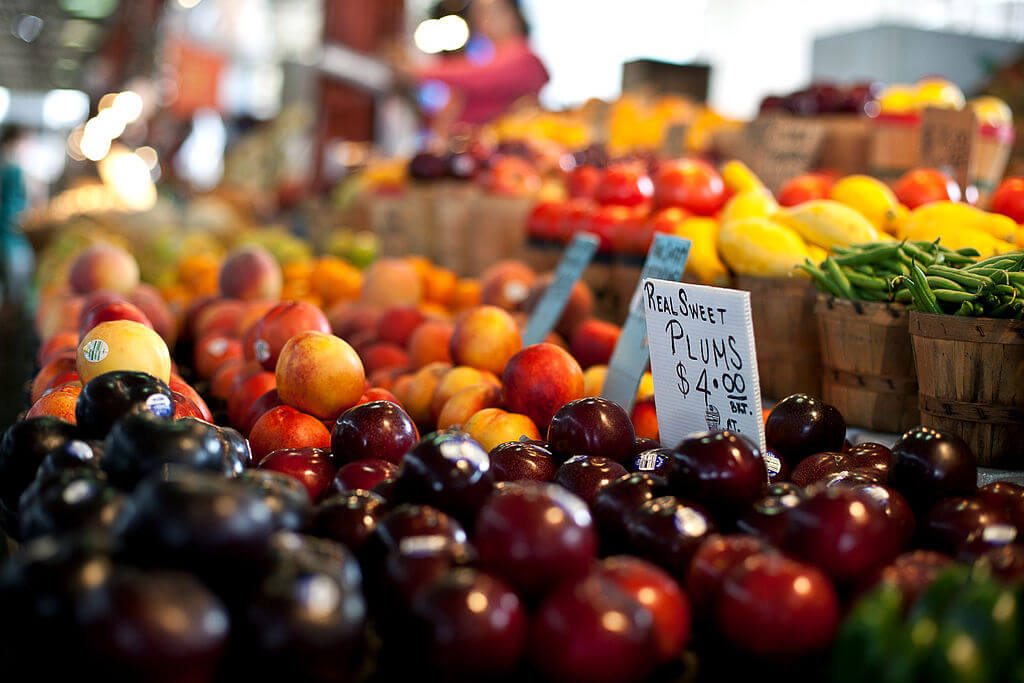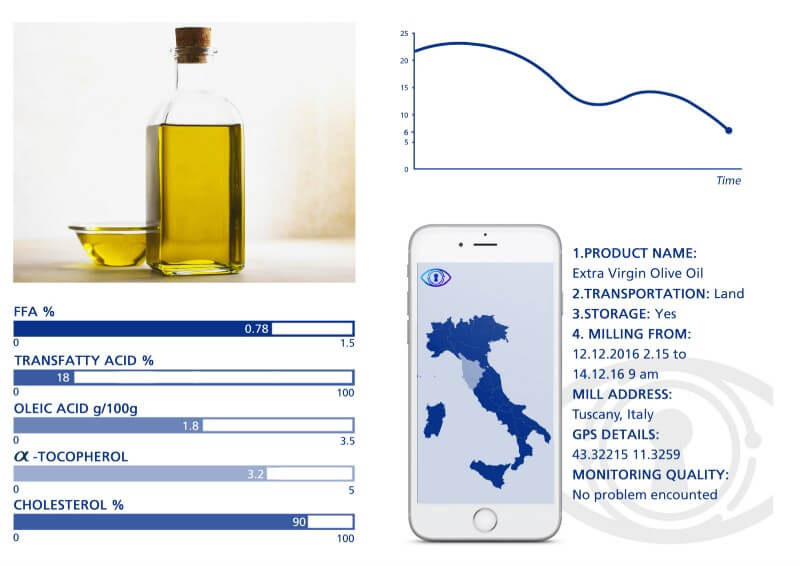
Swiss blockchain startup Ambrosus has launched a new peer-to-peer food marketplace that uses blockchain technology combined with Internet-of-Things (IoT) sensors to ensure the provenance and quality of products.
The peer-to-peer marketplace allows buyers to browse a range of offers from foods producers around the world, and track their quality and conditions at every stage of production and throughout the transportation process. It aims to offer a solution to the current deficiencies and challenges of current global food supply chains and markets.
The food industry is a complex environment with many stakeholders, perishable goods that need to be transported across the world, and low margins. Demand for food is growing, and farmers are under pressure to produce not only more but also better quality products.
Companies engage in fierce competition, and not always for the best. The numerous food safety scandals we’ve witnessed in recent years – from exploding watermelons, fake eggs and tainted baby formula in China, to the 2016 mass methanol poisoning in Russia, and horsemeat dressed as beef in Europe – have fueled demand for greater transparency and traceability in an industry that has so far remained rather opaque.
Ambrosus co-founder and CEO Angel Versetti, hopes the introduction of the peer-to-peer marketplace will “change the dynamic of global food markets” with farmers and food producers “no longer subject to the control of big buyers and downward pressures on the price of their produce.”
“Today’s quality conscious consumers are better informed and often prepared to pay more for high quality food,” Versetti said. “However, food producers who do follow ethical, healthy techniques have limited means to prove the quality of their products and get those products in the hands of consumers, not to mention the low prices at which they are forced to sell them.”
Combining high-tech sensors, blockchain technology and smart contracts, Ambrosus is building a universally publicly verifiable and community-driven system to assure the quality, safety and origins of essential products, such as medicine, food and commodities.

Its food marketplace comprises a reputation system for sellers and uses an escrow mechanism for payments that automatically reimburses customers if the delivered food does not meet the expected quality. To prevent food waste, the company has introduced the Dynamic Contract Rerouting system, which allows a product that was rejected due to insufficient quality to be made available to other buyers to purchase at a lower price.
Ambrosus is part of the United Nations 10YFP Sustainable Food Systems Programme (SFS Programme), a multi-stakeholder initiative to promote sustainability all along the food supply chain. Coordinated by the Federal Department of Economic Affairs of Switzerland, the SFS Programme brings together existing initiatives and partnerships, while leveraging resources towards priority activities such as the reduction of waste in the global food sector.
In parallel, Ambrosus is working with US pharmaceutical company Trek Therapeutics on several pilot projects to monitor the quality, safety and integrity of all stages of the pharmaceutical manufacturing process.
The two partners aims to build an alternative monitoring and tracking system that would be less labor intensive, less expensive, and more transparent to all stakeholders in pharmaceutical manufacturing.
“Our goal is to develop a system that is robust enough that Trek can submit data to support our manufacturing application for regulatory approval of our drugs from the FDA and EMA authorities,” said Dr. Ann Kwong, co-founder and CEO of Trek Therapeutics. “Additionally, patients currently have no way to ascertain the quality of the medicines they ingest.”
Counterfeited medicines, which can be contaminated, contain the wrong (or no) active ingredient, or have the right active ingredient but at the wrong dose, have become a truly global phenomenon. Today, all countries of the world are affected as source, transit or destination points.
The World Health Organization (WHO) estimates that up to 30% of the medicines sold in parts of Asia, Africa, and Latin America are counterfeit. Worldwide, an estimated 10% of all medicines are counterfeit.

